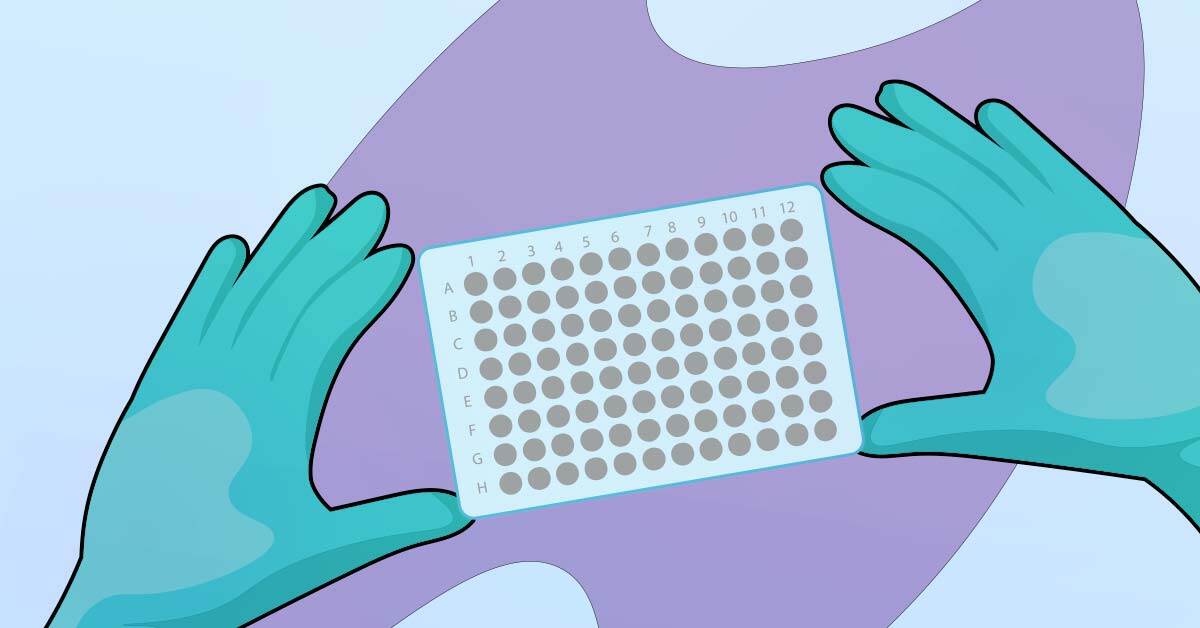Overcoming Challenges in Electrochemiluminescence Assays (ECLA) During Pre-Clinical PK Studies with Microfluidic Technology

Introduction
In the realm of preclinical pharmacokinetic (PK) studies, the accurate measurement of monoclonal antibodies (MAbs) in biological samples is critical. Immunoassays, such as those based on electrochemiluminescence (ECL) technology, are a staple for these measurements.
However, ECL assays (ECLA) come with their own set of challenges. This article delves into some of the common hurdles faced by scientists and technicians when implementing ECL assays and introduces microfluidic technology as a game-changing solution for automating and streamlining immunoassay workflows.
4 Common Challenges with Plate-Based ECL Assays
- Slow Assay Speed and Low Throughput: Traditional ECL assays are often slow, requiring multiple incubation steps and extensive handling. The slowed pace limits throughput, delaying the acquisition of critical data needed for decision-making in drug development processes. The low throughput can be a significant bottleneck, especially during high-volume testing phases.
- Manual Pipetting: Manual pipetting is a labor-intensive and time-consuming process, often taking hours to complete a single assay. This not only increases the likelihood of human error but also consumes valuable technician time that could be better spent on data analysis and interpretation. Manual pipetting also introduces variability, which can affect the reproducibility and reliability of the results.
- Interference with Assay Results: Biological matrices, such as serum or plasma, contain a variety of non-specific binding components that can interfere with assay results. These components can lead to high background noise, reducing the sensitivity and accuracy of the immunoassays. Managing this interference requires additional steps and controls, further complicating the workflow.
- High Volume Requirements: ECL assays often require significant sample and reagent volumes, which can be particularly problematic when working with limited or precious samples, such as those from mouse models. The need for high volumes can limit the number of analyses that can be performed, reducing overall throughput and potentially compromising the robustness of the study.
Simplifying Immunoassay Workflows with Microfluidic Technology
Microfluidic technology, particularly in a CD (compact disc) format as employed by the Gyrolab® platform, addresses these ECL challenges head-on, offering a streamlined, automated approach to immunoassays.
How can laboratory directors and scientists directly benefit from this alternative solution to ECL?
- Automation and Precision: The Gyrolab® system uses nanoliter-scale microfluidics to automate immunoassays, significantly reducing the need for manual intervention. By leveraging centrifugal force and capillary action, the system precisely controls the processing of up to 112 data points per CD. This automation minimizes human error, enhances reproducibility, and frees up technician time for more critical tasks.
- Low Sample Volume Requirements: One of the standout features of microfluidic technology is its minimal sample volume requirement. The Gyrolab® platform can operate with sample volumes as low as 5-10 µL, making it ideal for studies with limited sample availability. This capability not only conserves precious samples but also allows for multiple analyses from a single collection, improving data quality and study robustness.
- Reduced Matrix Interference: The microfluidic CD format reduces the interaction time of samples with non-specific binding components, minimizing background noise. This shorter contact time, approximately six seconds, ensures higher assay sensitivity and accuracy, particularly in complex biological matrices. The result is cleaner data and more reliable quantification of target analytes.
- Speed and Throughput: Gyrolab® technology eliminates the need for lengthy incubations and multiple manual handling steps, reducing assay run times to about an hour. This accelerated workflow not only increases throughput but also enables same-day data acquisition, facilitating rapid, data-driven decision-making. The ability to handle multiple CDs in one run further enhances throughput, making it an invaluable tool for high-volume testing campaigns.
Conclusion
Navigating the complexities of immunoassay workflows in preclinical PK studies can be daunting, but microfluidic technology offers a robust solution. By addressing challenges such as high-volume requirements, manual pipetting, background noise, and slow assay speeds, the Gyrolab® platform streamlines and automates the process, enhancing productivity and data quality.
As the biopharmaceutical industry continues to advance, embracing innovative technologies like Gyrolab platform can help accelerate breakthroughs and drive success in drug development.
Ready to Explore Further?
The Gyrolab platform is a pioneering solution for scientists seeking to optimize their immunoassay workflows. By automating immunoassays at a nanoliter scale, the platform maximizes productivity and delivers high-quality data. Key benefits include:
- Miniaturized ELISA Technology: Automated nanoliter-scale immunoassays reduce sample and reagent consumption while ensuring high reproducibility.
- Unattended Operation: The system allows for continuous, unattended runs, freeing up valuable lab resources.
- Efficient Workflow: With low sample volume requirements and reduced background interference, Gyrolab® technology delivers reliable results quickly.
- High Throughput and Fast Assays: Run times are shortened to about an hour with fully unattended automation, significantly increasing throughput.
- Quality Data: The microfluidic immunoassay technology offers broad dynamic ranges and high sensitivity, ensuring the reliability of your data.
The Gyrolab suite, including the Gyrolab xPand and Gyrolab xPlore systems, Bioaffy CDs, kits and solutions, and custom assay services, empowers scientists to maximize productivity and make data-driven decisions swiftly.
Gyros Protein Technologies has been an industry leader for over 20 years, trusted by pharma, biotech, and CROs worldwide.